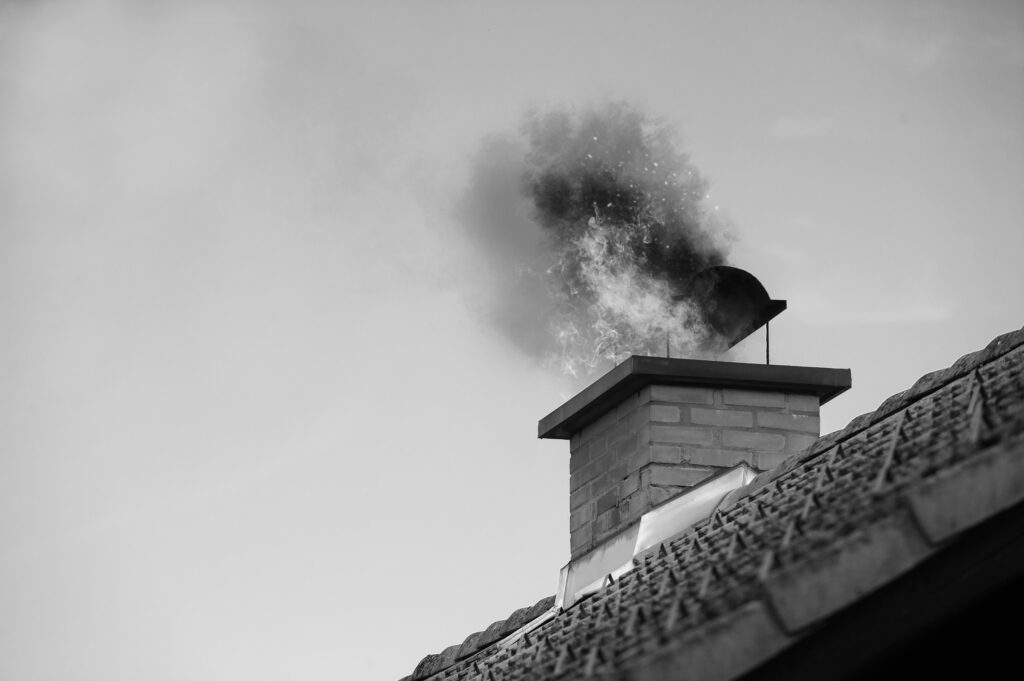A clean chimney is not only effective at directing smoke out of your home but also prevents fire hazards from occurring. If you haven’t cleaned your chimney in a while, it is likely to develop a buildup of soot and other debris such as creosote. When you are using the chimney, hot air that gathers on top may set some of the debris or the lining on fire, causing damage to your property. In this article, we will be discussing some of the steps you can follow to keep your chimney clean longer and prevent potential fire hazards from happening.
Schedule for professional chimney cleaning
Cleaning a chimney might seem an easy task to do yourself but could end up being an overwhelming task if you lack the knowledge, experience, and right tools to handle the job safely and efficiently.

Get your chimney cleaned professionally by us
Chimney cleaning professionals use state-of-the-art power tools and high-tech camera systems to deal with massive creosote buildup. Their years of experience allow them to identify potential problems early on and recommend solutions that help you save money in the long run. They also have insurance cover if they are injured on the job so you don’t have to incur extra costs in the process.
- Dust inside the fireplace frequently
Cleaning inside your fireplace often reduces the need for scheduling professional visits. The root of most chimney problems is soot and ash buildup; therefore, regular cleaning prevents this from occurring in the first place. The frequency of dusting your fireplace depends on how often it is used. Consider cleaning it up weekly if you use your fireplace every day and probably monthly if you only use it once a week. Wait at least 36 hours for your fireplace to cool down completely before you start the cleaning process.
- Use the right wood to prevent creosote buildup
The type of wood you use in your fireplace determines how long your chimney can stay clean. Moisture from wood must evaporate or be expelled to allow it to burn. The best way to ensure this is possible is by cutting your wood in pieces and air-drying them long enough to expel moisture. Some types of wood that are easy to ignite and burn for a long time include ash, birch, oak, and wood bricks. Types of woods that are not recommended for use in the fireplace include wet wood, softwood, and engineered wood species. Not only do softwoods burn very fast but also generate a lot of soot.
- Install a chimney cap
One of the issues that limit the performance and structural integrity of your chimney is water damage. Not only can it stain the chimney but can also add to the creosote allowing fire to spread rapidly. Installing a chimney cap can help keep water out of your chimney. A chimney cap serves to block downdrafts, reduce moisture, prevent debris buildup, and stop escaping sparks. Without a rain cap, birds and other small mammals can crawl and nest within the chimney, creating unpleasant odors, blockages, or fire hazards.
- Avoid burning wood at low temperatures
Burning at very low temperatures when using your wood-burning stove or fireplace can lead to the formation of creosote as a result of incomplete combustion. To ensure your chimney stays clean for longer, consider using a mixture of both small and large logs of wood that burn consistently. It is also a good idea to maintain a proper draft with your air intake controls or damper. Consistent burning of wood at higher temperatures also decreases the emission of pollutants such as carbon monoxide and particulate matter that help improve your indoor air quality.
- Schedule regular inspections
Performing regular inspections in your chimney can help you detect potential problems earlier on before they escalate. Some of the problems that can be identified during an inspection include creosote buildup, cracks, damaged or loose bricks, and other debris that can cause blockages. Addressing these issues early not only helps to keep your chimney clean for longer but also extends its lifespan to avoid costly repairs in the future.
Keeping your chimney clean at all times is essential as it guarantees your safety and the efficiency of the chimney. It requires some level of effort to provide proper maintenance to your chimney. With these steps in mind, your chimney will not only stay clean for longer but you will also have a safer fireplace experience. Detecting and solving chimney problems earlier on helps you save on maintenance costs in the long run.




